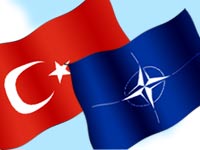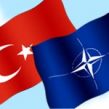
Turkey Maintains Reservations About US Missile Defense
Publication: Eurasia Daily Monitor Volume: 7 Issue: 190
By:

Turkey’s position on US efforts to create a ballistic missile defense (BMD) system in Europe has emerged as another source of tension in US-Turkish relations. The Bush administration originally contemplated the installment of a missile shield in Eastern Europe, yet failed to achieve its stated objectives in the face of strong Russian opposition. At the time, Turkey expressed a cautious position on such proposals, arguing that it should not proceed in a manner threatening to Russia. Recently, the Obama administration revived the idea as a central component of its policy of containing the threat posed by the Iranian nuclear program.
Turkey has been considered as a possible location for the system, possibly hosting a radar battery on its soil, which would detect missiles launched from its surrounding regions so that they could be intercepted by missiles stationed in Turkey or Eastern Europe. The US also moved to present the revamped program as a joint NATO project, in obvious attempts to garner wider diplomatic support, and perhaps ease Ankara’s concerns. However, given Turkey’s position on the Iranian nuclear issue, which already had pitted it against the US, Ankara has remained lukewarm towards invitations from Washington to join the project. The recent trend in Turkish foreign policy towards pursuing independent policies and growing questions as to whether it is still committed to the Alliance and its traditional relations with the US has made Turkey’s position all the more puzzling.
This issue has been at Turkey’s doorsteps visibly at least since Admiral Mike Mullen, the Chairman of the US Joint Chiefs of Staff, visited Turkey in early September (EDM, September 8). Similarly, during his visit to Turkey in early October, NATO Secretary-General, Anders Fogh Rasmussen, discussed this issue (www.cnnturk.com, October 8). Ankara’s position was again one of the main items when NATO foreign and defense ministers met on October 14 in Brussels to discuss the Alliance’s new strategic concept, which will be adopted at the NATO summit in Lisbon next month. Rasmussen urged alliance members to consider the proposal for adopting a missile shield seriously against threats from rogue states, as underlined in the draft strategic concept.
In Brussels, Turkish foreign and defense ministers, Ahmet Davutoglu and Vecdi Gonul, respectively, held a separate meeting with their US counterparts Hillary Clinton and Robert Gates. They conveyed Turkish concerns, especially its uneasiness with the proposed system being perceived as targeting Iran and Syria. They emphasized that the project must proceed as a defensive system, without designating any country as a potential aggressor. Otherwise, it could make these countries feel encircled and heighten tensions in the region. Turkey also reportedly expressed its desire to place the system under NATO’s command, and have it cover the entire territory of NATO members. Regarding the use of Turkish territory as a possible site for the system, the Turkish side apparently maintained its reservations (Dogan, October 14; Cihan, October 16).
Speaking to reporters upon his return to Turkey, Gonul, however, did not rule out Turkey’s participation. Gonul rejected labeling Turkey’s stance as simply putting up objections, noting that the two sides were negotiating, which will continue until the Lisbon summit. Interestingly, Gates also denied speculation that the US was pressuring Turkey and said they were simply continuing negotiations with an ally. Gonul preferred to highlight the potential benefits of the missile shield for Turkey’s own security. Referring to some smaller scale defense systems Turkey is undertaking, Gonul maintained that if a future NATO missile shield also covers Turkey, it might help the country save huge costs (Zaman, October 16, October 17).
Gonul apparently sees some opportunity for Turkey to participate in the missile shield project, since most of the costs would be borne by the United States. Turkey has considered missile defense systems since the 1990’s, but has failed to build an operational system, given its inability to shoulder the enormous costs of such a project and its limited technological know-how. One Turkish defense expert, Mustafa Kibaroglu, stressed that Turkey might opt to benefit from this project by seeking to gain a say in the decision making processes of the system and sharing technological expertise (Hurriyet Daily News, October 20).
During his trip to the US where he attended the 29th annual American-Turkish Council (ATC) conference in Washington, Gonul, accompanied by Turkish government officials and diplomats, continued the talks on the issue with their American counterparts. “Contrary to some press reports, we are not pressuring Turkey to make a contribution. But we do look to Turkey to support NATO’s adoption at the Lisbon summit of a territorial missile defense capability,” Gates said, underscoring the ongoing difficulties in bridging the differences of opinion (Today’s Zaman, October 20).
Unlike Davutoglu, who has been the architect of Turkey’s controversial Iran policy, Gonul might be less concerned about Turkey’s Iran portfolio and more sympathetic to the idea of benefiting from the missile shield project. Nonetheless, Ankara’s reservations over the ramifications of the project for its relations with its neighbors still run deep. Davutoglu has emphasized on many occasions that Turkey does not perceive any threats from the Middle East, and recently added that regional countries do not pose a threat to NATO, either (www.cnnturk.com, October 20).
Turkey might increasingly find itself between a rock and a hard place. Irrespective of whether NATO designates any targets, Iran, whom the US has already dubbed as a “rogue state,” might nonetheless perceive the missile shield as a threat. Turkey, thus, will find it hard to explain its support for the missile shield to its Middle Eastern neighbors, especially as it pursues a “zero problems with neighbors” policy and forges deeper regional integration in the Middle East. In contrast, given the deep-running problems currently bedeviling US-Turkish relations, caused by the row over the Iranian nuclear issue and Turkey’s disputes with Israel, Turkey might not afford to be the deal-breaker at NATO. Ankara already sparked the ire of the US and other NATO members, when it contemplated vetoing Rasmussen’s election last year (EDM, April 6, 2009).
Nonetheless, it may still be too early to determine the conditions under which Turkey could give its consent. Indeed, Turkey might prefer to continue “negotiations” on this issue until the Lisbon summit, and perhaps beyond.




